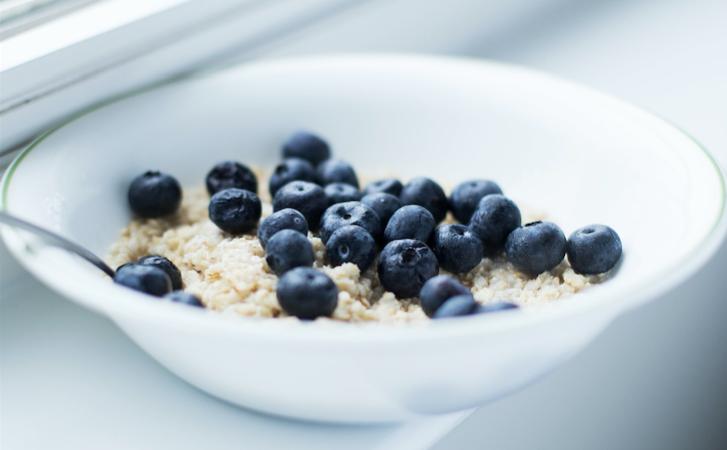"Ask the Coach" is the column in which Wolfgang Unsöld answers your questions. The book of the same name was published by Riva Verlag and is available directly here on Amazon.
Question: If you look at the diet plans of bodybuilders, athletes, and fitness models, oatmeal is almost always there. The oatmeal can't actually be that wrong. But since they're a grain and you're not a fan of grain products, what's your take on oatmeal in the diet?
WU: At the right time and in the right amount Oatmeal is a good source of carbohydrates. Most people consume oatmeal for breakfast. I have already explained in detail why I am not a fan of carbohydrates for breakfast in this article “Eat animal for breakfast” and in my first book “ Your best training” . The tip “Eat gluten-free” is also represented there. This is a practical tip that is easy to implement and has immediate positive effects for many people. However, the theory and the background to this are a bit more complex. I explain this in detail in my article "Gluten is not just gluten" .
Here are four reasons I recommend oatmeal as a gluten-free carbohydrate source.
1. Oats technically contain gluten, but not in the form that most people find difficult.
Gluten is a mixture of two types of reserve proteins (storage proteins in seeds, roots and tubers) from two different groups, the prolamins and the glutelins, which every grain contains. Wheat contains gliadin (prolamine group) and glutenin (gluteline group), while oats contain avenalin and avenin. Many texts only refer to the wheat prolamin gliadin as the culprit, but at the same time there are warnings about rye and barley. Since the gluten component gliadin in wheat is a lectin, it can increase the permeability of the intestinal barrier. This is due to the fact that the lectins (plant's own defense proteins/anti-feeding toxins) are changed by fermentation, soaking and long dough processing. The intestine would become leaky, something that is referred to as leaky gut syndrome. Toxins, bacteria, undigested nutrients and metabolic products get directly into the organism via the damaged intestinal mucosa and can cause a wide variety of complaints. Oats do not contain gliadin, but they do contain lectins. Therefore, oatmeal should always be soaked before consumption to render the lectins it contains harmless. The German Celiac Society considers oats to be a possible part of a gluten-free diet if carefully introduced into the diet.
2. Oatmeal contains beta glucan
Beta glucan is a plant fiber that activates the macrophages (scavenger cells of the immune system) and thus supports the immune system and has anti-inflammatory and cholesterol-lowering properties. What is good.
3. Oatmeal is a slow release carbohydrate and is high in fiber
Rolled oats are so-called complex carbohydrates, long-chain polysaccharides (multiple sugars) that first have to be broken down and are therefore digested more slowly and that do not raise blood sugar as quickly and as much as short- or medium-chain carbohydrates. The outer layers and germ of the oat grain, which are found in the oatmeal, contain most of the important nutrients, such as protein, B vitamins, minerals and fiber. Oats are about 10% fiber, such as the aforementioned beta-glucan, pectin, and cellulose. Fiber is indigestible because it is not broken down by enzymes. They are low in calories, filling and support peristalsis (intestinal movement) and thus digestion.
4. Oatmeal is quick to prepare and tastes good
I recommend oatmeal in the form of porridge/oatmeal, ideally as a meal at leisure, as a post-workout meal, or with or after dinner. Depends on how carb tolerant someone is. The YPSI skinfold measurement with a YPSI trainer provides the best information about this.
Recipe for porridge/oatmeal:
Blend oats in blender 2-3 times for about 1 second. Then put in a bowl or a deep plate and pour hot water over it and let it stand for about 10 minutes. Stir several times. Complete! Berries, applesauce and some cinnamon go well with this.
Good luck with oatmeal as a gluten-free carbohydrate source!
If you have a question for the Ask the Coach column, post it in the comments below and with a little luck your question will be selected for an upcoming post or the next Ask the Coach book.
Image: Oatmeal with blueberries.

